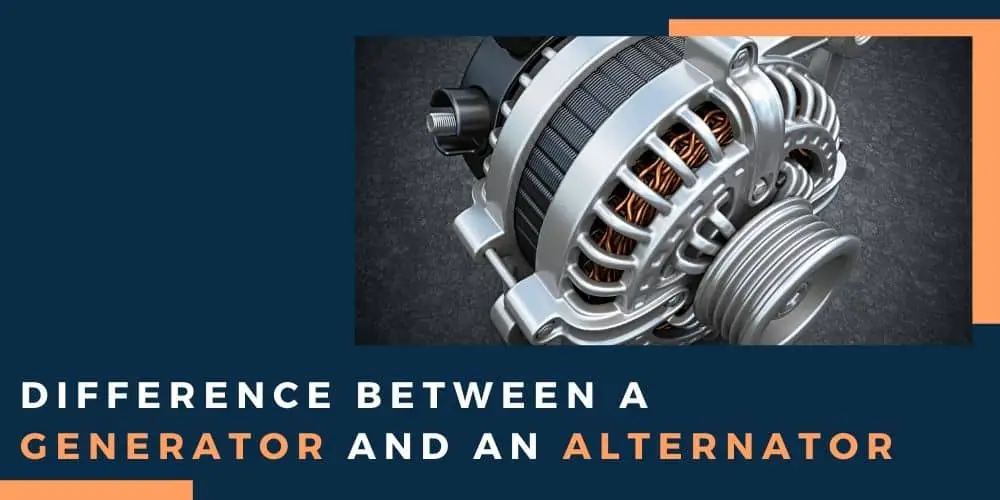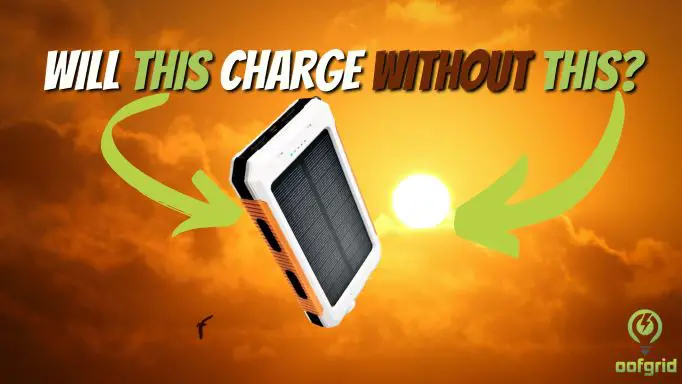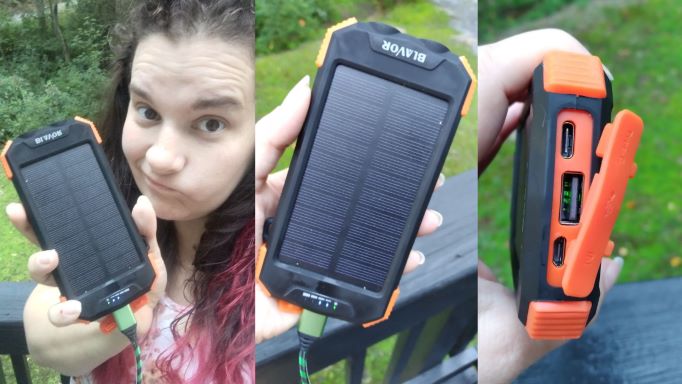Generators and alternators are both used to generate electricity, so it is easy to understand why some people get confused between the two. However, the way that they generate said electricity makes them different.
When thinking of a generator, you might think of portable boxes that produce enough energy to power emergency basics in a home, should the power go out. Alternatively, when you think of an alternator you will probably associate it with the power source of a car battery.
These are the most basic ways to describe a generator and an alternator, but you will need to know a little more about each one to fully understand the differences between the two.
Today we’re going to be walking you through everything you need to know about generators and alternators.
Contents
What is a generator?
Generators can convert mechanical energy into electrical energy, whether that be an alternating current or a direct current.
A generator creates electricity with the help of a rotor made up of coiled wires. As the rotor rotates, electricity builds up inside of the generator. The housing acts like a magnetic field and keeps all of the energy stationary until it is needed.

With so much electricity in one static place, the energy will build up quickly and become enough to turn the armature. The magnetic field for a generator is fixed in one place at all times.
The armature is another rotating coil, or multiple coils, within the motor. When the armature isn’t moving, it can produce a low voltage which travels to the rotor through slip rings.
Generators can produce a lot of continuous electricity without needing to stop and recharge. You can use them for numerous functions, from keeping your devices topped up to charging completely flat your battery.
Due to this, most generators are used as backup power for homes should the mains power be cut off, or the main source of energy in RVs and motorhomes. They are impressive devices that can be incredibly useful in emergency situations.
What is an alternator?

On the other hand, we have the alternator which is a type of generator that can transform mechanical energy into electrical energy as an alternating current. You will most likely find an alternator inside of an automobile as the alternator can turn the energy into electricity to charge the battery.
The mechanical energy rotates a magnet, creating a current that distributes energy to the battery. This will only produce an alternating current rather than a direct current.
Alternators will only provide energy when it’s needed, so they can be considered more efficient than generators. Once the battery needs charging, only then will the alternator jump into action. This allows your car to run for long periods of time without running out of battery.
If your car were to stop running while you were driving, it could be due to a fault with the alternator. Unfortunately, an alternator cannot charge a battery once it’s completely run out. This could damage the battery beyond repair.
On the whole, alternators are a specialized version of a generator that has been tailored to work with mechanical energy.
Generators vs. Alternators
The Key Differences Between Generators and Alternators
The basic premise of generators and alternators might be similar, but there are still plenty of differences between them. Perhaps the most important and obvious difference is that a generator can convert energy into both alternating and direct currents, while an alternator only converts energy into alternating current.
While a generator has a fixed magnetic field to house the energy and allows the armature to spin, an alternator’s magnetic field is constantly rotating.
Alternators will not charge a battery once it runs completely out of charge as it could pose a fire risk or damage your battery further. On the other hand, generators can charge a flat battery without any issues.
Alternators often have a higher current output than generators. Despite this, generators can be used to produce energy on a much larger scale. This is why generators can be used to power entire motorhomes while alternators are only used to keep an automobile battery charging and running.
Due to this, generators are often much larger than alternators. Having said that, both vary greatly in size. For example, you could choose a very small portable generator to run your handheld items while needing an extra-large alternator for a large vehicle.

Generators have a rotor that will supply it with the initial energy, while an alternator uses a stator to do the same thing.
A brush in a generator is a device that conducts the current between stationary wires and moving parts such as a rotor. While the brush in an alternator can last for a long time without needing to be replaced, a generator’s brush is used more often and therefore is not as long-lasting.
This can be put down to the fact that a generator is often used for a longer period of time, such as all day for multiple days in a row, while alternators are not always running. As we mentioned before, alternators only work when they are needed by a vehicle’s battery.
Due to this, an alternator could last longer than a generator as it is not used as much and therefore not subjected to premature wearing.
Summary
Overall, an alternator can be viewed as a smaller variation of a generator. While there are a few similarities between the two, there are many more differences to look at.
The most noticeable differences are the sizes and how they both convert power into electricity. Generators are often much larger in size than an alternator, and they can also be used to run much larger areas.
While a generator can power your emergency appliances in a power cut, the alternator is only good for charging your battery while driving.
Both generators and alternators are excellent devices in their own right, but they are both in charge of very different things and should not be mistaken for one another.






